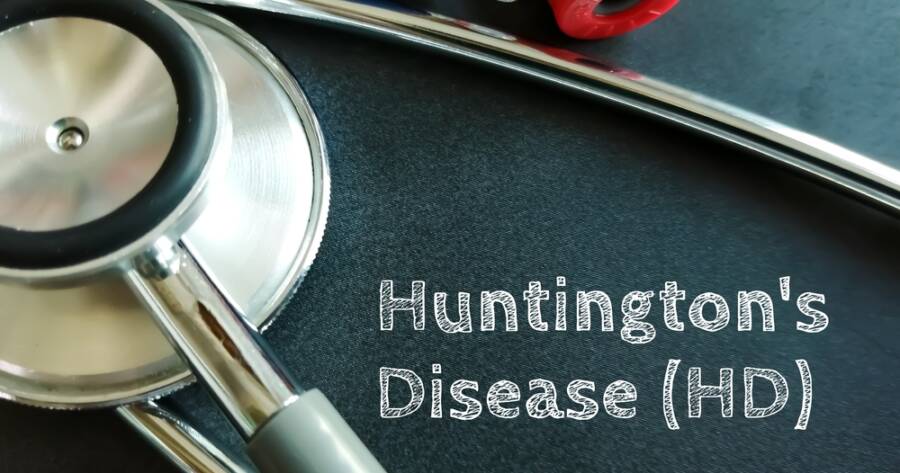Huntington’s disease (HD) is a rare, inherited neurological condition that progressively affects the brain’s nerve cells. While uncommon, its impact can be life-altering for those affected and their families. Recognizing early signs is crucial for seeking timely medical advice and accessing appropriate care. Explore potential symptoms of Huntington’s disease and highlights why paying attention to them matters.
Understanding Huntington’s Disease
Huntington’s disease results from a genetic mutation in the HTT gene, which affects the production of huntingtin, a protein crucial for healthy brain function. Over time, the disease leads to the breakdown of specific nerve cells in the brain.
Symptoms typically appear between the ages of 30 and 50, but juvenile cases can occur earlier. Because HD progresses gradually, signs often start subtly and worsen over time.
Early Motor Symptoms: The Body’s First Clues
Motor symptoms are often the first noticeable signs of Huntington’s disease. These physical changes may start subtly but gradually become more pronounced. Common early motor symptoms include:
- Involuntary movements: Small, jerky, or uncontrolled movements (chorea) may begin in the fingers, face, or limbs. Over time, these movements can affect daily activities.
- Muscle rigidity or dystonia: Some individuals may notice stiffness or awkward postures in specific muscles.
- Clumsiness and falls: Early issues with coordination can lead to tripping or dropping objects more frequently.
It’s important to note that these symptoms alone are not definitive proof of Huntington’s disease, as they overlap with other neurological conditions. Consulting a healthcare professional is critical to rule out alternative explanations.
Cognitive Changes: Subtle Shifts in Thinking
In addition to motor symptoms, Huntington’s disease often affects cognitive functions, sometimes even before physical symptoms are evident. Key cognitive changes may include:
- Difficulty concentrating: Individuals might struggle to stay focused on tasks or conversations, which can lead to frustration at work or in social settings.
- Memory problems: Forgetting appointments, misplacing items, or experiencing gaps in short-term memory are common signs.
- Impaired decision-making: Changes in judgment or problem-solving abilities may emerge as the disease progresses.
These cognitive symptoms can mimic other conditions like anxiety, depression, or even age-related cognitive decline, making a comprehensive medical evaluation essential.
Emotional and Behavioral Symptoms: The Hidden Impact
Huntington’s disease doesn’t just affect the body and mind—it can also significantly impact emotions and behavior. Changes in mood and personality often cause distress for both the individual and their loved ones. Some of the emotional and behavioral signs include:
- Irritability and Mood Swings: Unexplained anger or sudden mood shifts may signal changes in the brain’s functioning.
- Apathy or Withdrawal: A reduced interest in previously enjoyed activities or social interactions is another common symptom.
- Depression and Anxiety: These mental health concerns often arise alongside other symptoms and may exacerbate feelings of isolation.
Recognizing these emotional shifts as potential symptoms of Huntington’s disease (rather than standalone mental health conditions) can guide individuals toward appropriate care.
Why Recognizing Symptoms Early Matters
Although there is currently no cure for Huntington’s disease, early recognition of its signs offers several benefits:
- Access to supportive treatments: Therapies such as physical, occupational, or speech therapy can help manage symptoms and maintain functionality for as long as possible.
- Family planning: Genetic counseling provides vital information for those considering starting a family, given Huntington’s hereditary nature.
- Emotional preparedness: Understanding the disease allows individuals and families to seek psychological support and build a network of care.
- Clinical trial opportunities: Early diagnosis may enable participation in clinical trials testing new treatments.
Proactively seeking medical advice when symptoms arise can help individuals and families make informed decisions about care and planning.
When to See a Doctor
If you or a loved one are experiencing a combination of motor, cognitive, and emotional symptoms, consulting a neurologist or genetic counselor is advisable. A thorough evaluation may include:
- Neurological exams: Assessing coordination, reflexes, and motor control.
- Imaging tests: MRI or CT scans can reveal structural changes in the brain.
- Genetic testing: A definitive diagnosis often involves testing for the HTT gene mutation.
It’s important to approach testing thoughtfully, especially for those without symptoms but with a family history of Huntington’s disease. Genetic counseling can provide support in navigating this decision.
A Call to Attention
Huntington’s disease is a complex and challenging condition, but understanding its early signs can make a significant difference in how it is managed. While the presence of symptoms does not guarantee a Huntington’s diagnosis, paying attention to unexplained changes in movement, cognition, or behavior is crucial.
Seeking medical advice early allows for improved symptom management and planning, giving individuals and families the tools they need to navigate the challenges ahead. Awareness, early intervention, and a supportive community are vital in facing this condition with resilience and hope.

